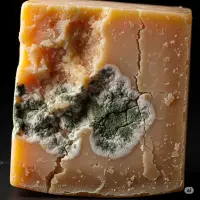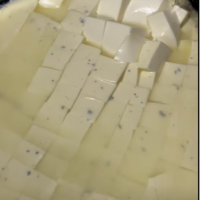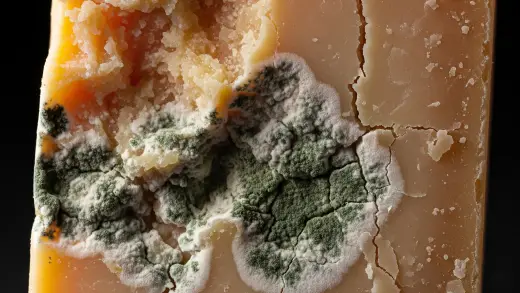Cheese curds can sit out for about 2 hours before they should be refrigerated to maintain freshness and reduce the risk of bacterial growth. Cheese curds are a popular dairy product known for their squeaky texture and delicious taste.
Whether you’re enjoying the cheese curds on their own, using in a recipe, or adding to poutine, it’s important to know how long they can safely sit out before refrigerateing. We will explore the ideal storage conditions for cheese curds and how long they can sit out before they should be refrigerated.
By following these guidelines, you can ensure that your cheese curds remain safe to eat and retain their exceptional flavor. So, let’s dive in and uncover the best practices for storing cheese curds.
Cheese Curds Safety And Storage
Proper storage is crucial for maintaining the quality and safety of cheese curds. Whether you’re a cheese enthusiast or simply craving a delicious snack, understanding the importance of proper cheese storage is key to enjoying your cheese curds to the fullest.
Importance Of Proper Cheese Storage
Proper cheese storage is essential for preserving the flavor and texture of cheese curds. When cheese curds are not stored correctly, they can quickly become spoiled, lose their freshness, and even pose potential health risks.
By following the recommended storage guidelines, you can extend the shelf life of your cheese curds, ensuring their optimal taste and safety for a longer period. Let’s explore the dangers of improperly stored cheese curds.
Dangers Of Improperly Stored Cheese
Improperly stored cheese curds can be a breeding ground for harmful bacteria, which can lead to foodborne illnesses. When cheese curds are exposed to improper temperature, humidity, or air circulation, they become susceptible to bacterial growth.
Leaving cheese curds sitting out for an extended period allows bacteria to multiply rapidly, increasing the risk of contamination. Without proper storage, cheese curds can develop mold or spoilage, compromising their quality and safety. To avoid these risks, it’s crucial to understand the optimal storage conditions for cheese curds.
Optimal Storage Conditions For Cheese Curds
To keep your cheese curds fresh and safe, it’s important to store them in the right conditions. Here are the optimal storage conditions for cheese curds:
| Storage Condition | Details |
|---|---|
| Temperature | Keep cheese curds refrigerated at temperatures between 34°F and 38°F (1°C to 3°C). |
| Humidity | Store cheese curds in a humidity-controlled environment with moderate humidity levels, ideally around 80%. |
| Air Circulation | Ensure proper air circulation around the cheese curds by storing them in a well-ventilated container or wrapping them in cheesecloth. |
| Container | Store cheese curds in an airtight container or resealable bag to protect them from absorbing odors and moisture from the surroundings. |
| Duration | Consume cheese curds within 1-2 weeks of purchasing them for the best flavor and texture. |
Remember, maintaining optimal storage conditions for cheese curds not only ensures their longevity but also guarantees their safety and taste. By adhering to these guidelines, you can savor your cheese curds to their fullest potential.

Credit: rebootedmom.com
Assessing Cheese Curds Freshness
Assessing the freshness of cheese curds is crucial to avoid potential foodborne illnesses and to ensure the best quality taste. Cheese curds, being a dairy product, can spoil if left out for too long, causing them to become unappetizing and unsafe to consume. In this section, we will explore various ways to assess the freshness of cheese curds, including visual indicators, olfactory cues, and the taste-test method.
H3visual Indicators Of Freshness/h3
A visual examination can provide valuable insights into the freshness of cheese curds. By observing the appearance of the curds, you can gauge their quality. Here are some key visual indicators to look for:
- Color: Fresh cheese curds typically have a bright white or creamy yellow hue. Any discoloration, such as brown or green spots, may suggest spoilage and should be avoided.
- Texture: Fresh cheese curds have a squeaky texture and should be firm to the touch. If the curds appear mushy or slimy, it is a sign of deterioration and they should not be consumed.
- Shape: Cheese curds should have well-defined shapes, maintaining their individuality. If they are clumped together or stick to one another, it could indicate spoilage.
H3olfactory Cues For Cheese Curds/h3
The sense of smell is an excellent tool to assess the freshness of cheese curds. Our olfactory senses can detect subtle changes in the aroma of the curds, helping us determine if they are still safe to consume. When assessing the olfactory cues, consider the following:
- Odor: Fresh cheese curds have a mild, milky aroma. If there is any sour, pungent, or unpleasant smell, it is an indication that the curds have gone bad and should be discarded.
- Moldy smell: A prominent moldy smell is also a clear sign of spoilage. Mold growth on cheese curds is dangerous and can lead to food poisoning.
H3taste-test Method For Quality/h3
While visual cues and aroma provide significant insights, the ultimate test of cheese curds’ quality lies in their taste. By conducting a taste-test, you can confirm if the curds are fresh and flavorful. Follow these steps:
- Take a small portion: Select a small piece of cheese curd for tasting.
- Chew slowly: Chew the curd slowly to assess its texture. Fresh cheese curds have a springy and firm texture.
- Flavor: Pay attention to the taste. Fresh curds have a mild, buttery flavor with a hint of tanginess. If the curds taste off, sour, or bitter, they are no longer suitable for consumption.
By using these methods to assess the freshness of cheese curds, you can make informed decisions about their quality and ensure a satisfying cheese experience. Remember, freshness is key when enjoying this delectable dairy treat!
Shelf Life Of Cheese Curds
Cheese curds are a popular and delicious snack enjoyed by many. But have you ever wondered how long cheese curds can sit out before they go bad? In this blog post, we will dive into the shelf life of cheese curds and explore different factors that can impact their longevity.
Factory-sealed Cheese Curds Shelf Life
When it comes to factory-sealed cheese curds, you can expect them to last longer than opened or homemade ones. The packaging of these curds is designed to provide protection against external contaminants and help maintain their freshness. Typically, factory-sealed cheese curds have a shelf life of around 1 to 2 weeks if stored in the refrigerator at temperatures between 34°F (1°C) and 38°F (3°C). However, it’s important to check the expiration date on the packaging for precise information.
Opened Cheese Curd Expiration Considerations
If you have opened a package of cheese curds, their shelf life will decrease compared to factory-sealed ones. Once exposed to air and moisture, cheese curds can start to lose their freshness and quality.
To ensure their longevity, it is recommended to store opened cheese curds in an airtight container or resealable bag to minimize air exposure. Refrigerating them promptly at temperatures between 34°F (1°C) and 38°F (3°C) is crucial to preserve their texture and taste. Opened cheese curds can last for about 5 to 7 days under these conditions.
Impact Of Temperature On Cheese Curd Longevity
Temperature plays a significant role in determining the shelf life of cheese curds. Storing cheese curds at temperatures that are too warm or too cold can accelerate spoilage and lead to a shorter shelf life. If cheese curds are left at room temperature for an extended period, they are more susceptible to bacterial growth and can spoil within a few hours. It is essential to keep cheese curds refrigerated promptly after purchasing or opening them.
Moreover, fluctuations in temperature can also have adverse effects on the texture and taste of cheese curds. Extreme cold can cause them to become overly firm or even freeze, altering their original characteristics. Conversely, exposure to high temperatures can cause the curds to become soft and lose their squeaky texture. Therefore, maintaining a consistent and proper refrigeration temperature range is essential for preserving the quality and shelf life of cheese curds.
Crafting The Perfect Environment
When it comes to cheese curds, crafting the perfect environment for storage is crucial to maintain their freshness and flavor. Whether you’re a cheese connoisseur or simply enjoy indulging in this delicious treat, understanding the ideal temperature and humidity, as well as suitable storage container recommendations, is essential. In this article, we will explore these important factors and explore the best methods for storing cheese curds.
Ideal Temperature And Humidity
The temperature and humidity play a crucial role in preserving the quality of cheese curds. Like other dairy products, cheese curds are sensitive to changes in temperature and humidity, which can affect their texture and taste. To ensure the best storage conditions, aim for an ideal temperature of approximately 40°F (4°C). This temperature range provides the perfect balance between maintaining freshness without freezing the curds.
Moreover, it is essential to monitor the humidity level to prevent moisture loss or excessive moisture buildup. The ideal humidity range for cheese curds is between 80% and 90%. This range helps to preserve the curds’ moisture content, preventing them from becoming too dry or excessively moist.
Storage Container Recommendations
Choosing the right storage container is crucial for maintaining the freshness and quality of cheese curds. To ensure proper storage, opt for food-grade plastic or glass containers with airtight seals. These containers provide an effective barrier against external odors and bacteria while keeping the curds protected from moisture loss.
Select containers that are appropriately sized to avoid excessive air exposure. Leaving too much empty space in the container can lead to faster spoilage. Additionally, consider using multiple smaller containers instead of one large container, as this reduces the need to open the entire batch when accessing the curds.
- Airtight plastic containers with lockable lids
- Glass containers with rubber seals
- Resealable freezer bags
Storing Cheese Curds: Fridge Vs. Countertop
When it comes to storing cheese curds, the choice between keeping them in the refrigerator or on the countertop depends on various factors. While cheese curds can be kept at room temperature for a limited time, refrigeration is the preferred method for long-term storage.
Refrigerating cheese curds helps to slow down bacterial growth and preserve their freshness. Wrap the curds tightly in parchment paper or place them in an airtight container to protect them from excess moisture and odors from other foods in the refrigerator.
On the other hand, if you plan on consuming the cheese curds within a day or two, leaving them at room temperature is acceptable. However, ensure that the room is cool, dry, and within the ideal temperature and humidity range mentioned earlier.
- Refrigerate cheese curds for long-term storage
- Wrap tightly or use airtight containers
- Keep at room temperature for short-term storage if consuming within a day or two
By creating the perfect environment for your cheese curds, you can enjoy their delectable taste for a longer period. Remember to monitor the ideal temperature and humidity, choose suitable storage containers, and make an informed decision between refrigeration and countertop storage.
Spotting Spoiled Cheese Curds
Cheese curds are a popular snack loved by many around the world. However, it’s important to know how long cheese curds can sit out before they become spoiled and potentially harmful to consume. By learning how to spot signs of spoilage in cheese curds, you can ensure the safety of yourself and your loved ones. Let’s explore some key indicators and health risks associated with spoiled cheese curds, as well as when it’s best to discard them.
Signs Of Spoilage In Cheese Curds
It’s essential to know the signs of spoilage in cheese curds to avoid any unpleasant experiences or health issues. Although cheese curds can have variations regarding appearance, smell, and texture, there are common indicators that can help you identify whether they have gone bad:
- Off-putting odor: If your cheese curds emit a strong, sour, or ammonia-like smell, this could indicate spoilage.
- Mold growth: Visible mold on the surface of the cheese curds is a clear sign of spoilage. Both white and colored molds should be treated as a red flag.
- Unusual color: Cheese curds should have a consistent, creamy white or pale yellow color. If you notice any significant discoloration or green or blue streaks, it’s best to discard them.
- Texture changes: Fresh cheese curds are known for their squeaky texture. If the curds become excessively soft, slimy, or grainy, they may have spoiled.
- Unpleasant taste: If the cheese curds taste bitter, rancid, or simply off, it’s a strong indication of spoilage.
Health Risks Linked To Spoiled Cheese
Consuming spoiled cheese curds can pose various health risks, so it’s important to be cautious. When cheese curds spoil, harmful bacteria such as listeria, salmonella, and E. coli can multiply and cause foodborne illnesses. These bacteria can lead to symptoms such as nausea, vomiting, diarrhea, abdominal pain, and in severe cases, even life-threatening complications. Additionally, individuals with weakened immune systems, pregnant women, and young children are more susceptible to the adverse effects of consuming spoiled cheese curds.
When To Discard Cheese Curds
To ensure food safety, it’s crucial to know when to discard cheese curds that have gone bad. While the shelf life of cheese curds can vary based on factors like storage conditions, it’s generally recommended to discard cheese curds if:
- Their odor is unusually pungent or foul
- They show visible signs of mold, including both white and colored molds
- They have an off-color appearance, such as green or blue streaks
- The texture has significantly changed to slimy, grainy, or excessively soft
- The taste is bitter, rancid, or unpleasant
:max_bytes(150000):strip_icc()/ultimate-perfect-poutine-fries-cheese-curds-gravy-recipe-hero-2-7637732f8c174bc59f9b84e7b6e6b660.jpg)
Credit: www.seriouseats.com
How Long Can Cheese Sit Out? The Guide
How Long Can Cheese Sit Out? The Guide
When it comes to cheese, many people wonder how long it can safely sit out at room temperature before it becomes a potential food safety risk. In this comprehensive guide, we will explore the safe duration for cheese curds at room temperature, the factors that can affect cheese at ambient conditions, and the best practices for preserving the quality and safety of cheese curds.
Safe Duration For Cheese Curds At Room Temperature
Cheese curds, with their slightly elastic texture and squeaky bite, are a popular snack and ingredient in many dishes. While curds can withstand slightly higher temperatures compared to other types of cheese, it is still important to handle them with care to prevent spoilage and potential illness.
As a general rule, cheese curds should not be left at room temperature for more than two hours. Any longer, and the risk of bacterial growth increases significantly. Bacteria such as Staphylococcus aureus and Salmonella thrive in warm conditions and can multiply rapidly, potentially causing food poisoning.
Factors Affecting Cheese Curds At Ambient Conditions
Various factors can impact the safety and quality of cheese curds when left out at ambient conditions. Some of these factors include:
- Temperature: Higher temperatures accelerate bacterial growth, so it is crucial to store cheese curds at cooler temperatures to slow down the growth of harmful bacteria.
- Humidity: Excess moisture in the air can promote the growth of molds, which can negatively affect the quality and safety of cheese curds. It is essential to store them in a dry environment.
- Cross-contamination: Cheese curds should be stored separately from other perishable foods to minimize the risk of cross-contamination and potential bacterial contamination.
Preserving Quality And Safety Of Cheese Curds
To ensure the quality and safety of cheese curds, it is important to follow these best practices:
- Storage: Store cheese curds in an airtight container or tightly sealed packaging to prevent air exposure, which can lead to drying out and spoilage.
- Refrigeration: Keep cheese curds refrigerated at a temperature of 40°F (4°C) or below to slow down bacterial growth and maintain their freshness.
- Consumption: Consume cheese curds within a few days of purchase or preparation to ensure the best taste and quality. Discard any curds that show signs of mold or an off odor.
By adhering to these guidelines, you can enjoy your cheese curds safely and preserve their delicious flavor for as long as possible.
Frequently Asked Questions On How Long Can Cheese Curds Sit Out
How Long Can Cheese Curds Sit Out Before They Go Bad?
Cheese curds can sit out for up to two hours before they start to go bad. After that, they should be refrigerated to prevent bacterial growth and maintain their freshness. So, make sure to enjoy them within a couple of hours or store them properly in the fridge.
Can You Leave Cheese Curds Out Overnight?
No, it is not recommended to leave cheese curds out overnight. Cheese curds are a dairy product and can spoil if left at room temperature for too long. To ensure their quality and safety, it’s best to refrigerate them promptly after use, especially if they’ve been left out for more than two hours.
How Long Can You Keep Cheese Curds In The Fridge?
You can keep cheese curds in the fridge for up to two weeks. It is important to store them in an airtight container or resealable bag to maintain their freshness. Remember to check for any signs of spoilage, such as mold or an off smell, before consuming them, even within the two-week period.
Can You Freeze Cheese Curds?
Yes, you can freeze cheese curds to extend their shelf life. Place the curds in a freezer-safe bag or container and remove as much air as possible. Frozen cheese curds can last for up to six months. However, keep in mind that freezing may affect their texture slightly, so they might not be as squeaky when thawed.
Conclusion
To sum up, leaving cheese curds out for too long can lead to the growth of harmful bacteria and spoilage. It is crucial to follow food safety guidelines and refrigerate them promptly. Proper storage will help maintain their freshness and extend their shelf life.
By understanding the risks and taking necessary precautions, you can ensure the consumption of safe and delicious cheese curds.















